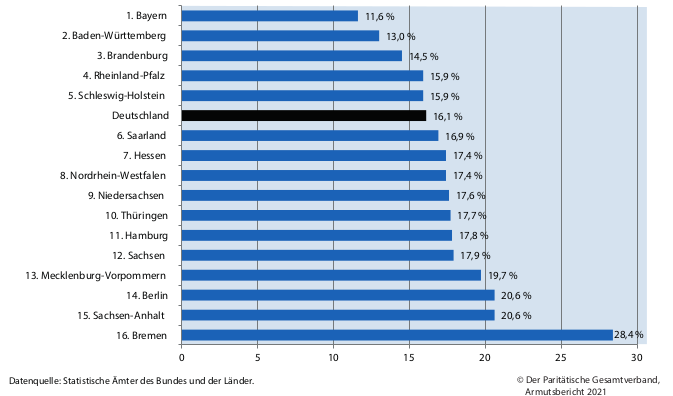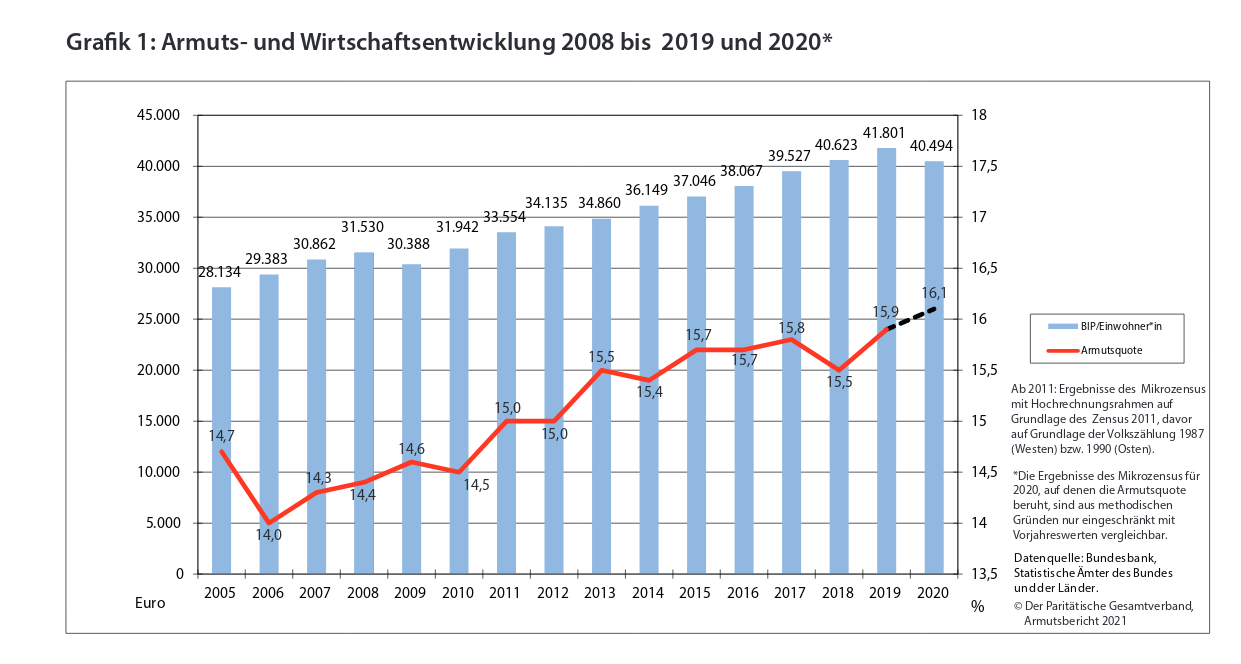According to the poverty report of the Paritätischer Wohlfahrtsverband, poverty rose to a new record level of 16.1 percent in 2020, the first year of the current economic crisis. Thus, 13.4 million people in the FRG are poor according to the bourgeois definition. This renewed increase is in line with the trend that has been evident for years. In 2006, it was 14 percent and in 2019 15.9 percent. The most severely affected by poverty are migrant people, single mothers and people with more than three children - which also makes the proportion of children living in poverty considerable. There is also a significant difference between the various federal states of the FRG. Bavaria, for example, comes off best with 11.6 percent, while in Bremen, which is the front-runner in terms of poverty with a rate of 28.4 percent, significantly more than one in four now live in poverty.

The Paritätische Wohlfahrtsverband also points out in its study that the poverty rate only increased so slightly because measures such as short-time work, the suspension of the obligation to report insolvencies, etc. were enacted. This shows above all that although the state was able to cushion the crisis with these measures, the crisis did not go away. That is the purpose of short-time work and other measures - to postpone the crisis and buy time. The big mass layoffs and thus a new wave of poverty are still to come and yet the trend of pauperisation of the people continued last year.











